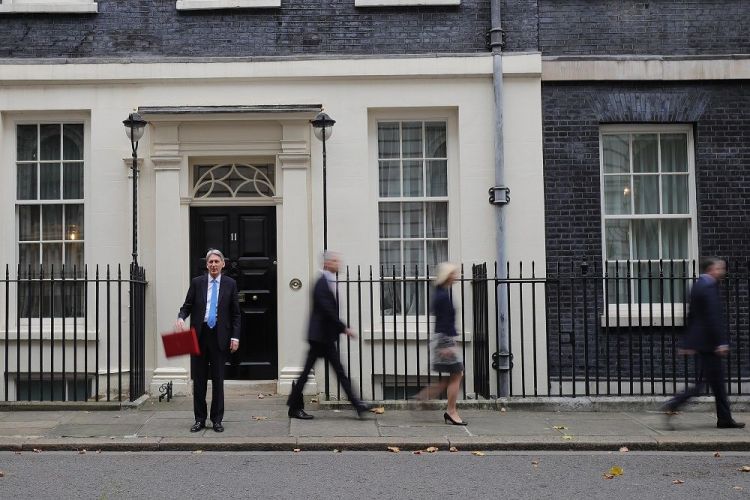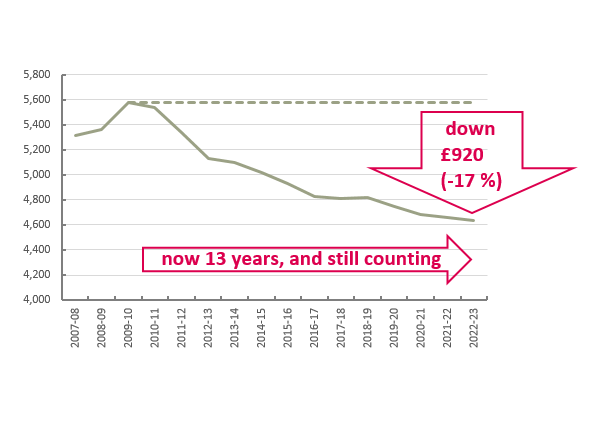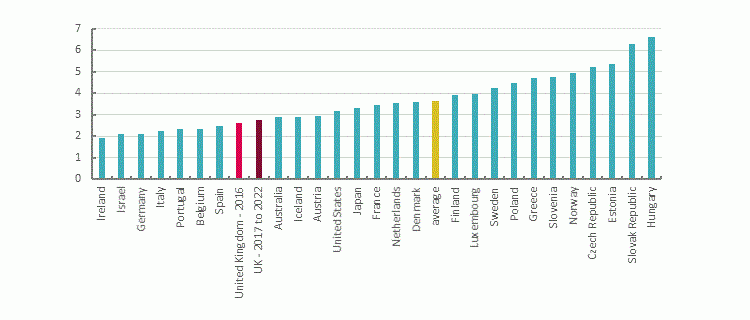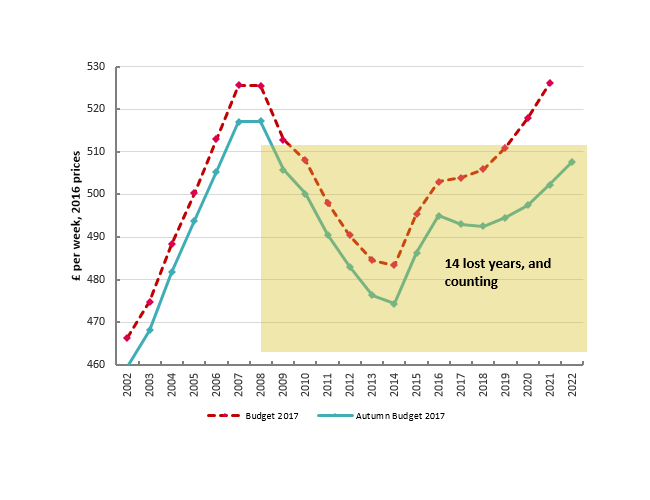Budget 2017 was all talk and no action

The TUC’s budget submission this year was titled ‘investing in the future’. So when the Chancellor stood up and began to talk about ‘a future that will be full of change; full of new challenges and above all full of new opportunities’ there was a small glimmer of hope he might deliver.
We asked him for change in four areas:
- Investing in public services and public servants
- An upgrade to our economic model, with a boost to investment
- A plan to get our workplaces fit for the future; and
- A boost to living standards now.
On each of those measures, we heard some talk from the Chancellor – but the figures show there’s not a lot of action.
Investment in public servants and public services
Public servants have been waiting seven years for the end of real terms wage cuts. But here the Chancellor had very little to say. And while he raised hopes in the NHS, he left other public-sector workers, including fire fighters, local government officers and prison officers out in the cold. The Red Book declares the end of the one per cent pay cap. However, aside from in the NHS it doesn’t promise any new money to pay for this, the likelihood is that any rises will therefore need to come from already overstretched budgets.
There was little joy for struggling public services either. Across the board, departmental public spending – that’s the spending that goes to on schools hospitals, local government, the police and other public services – is down £920 a head since 2009-10. With today’s Budget, the Chancellor added one more year of austerity, so 12 years of public services cuts
Departmental spending per head, real terms (16-17 prices)

Boosting investment
The big news in the budget was the growth figures – a downgrade in predicted GDP growth between 2017/18 and 2021/22 from 7.5 per cent (their estimate in March) to 5.7 per cent.
That has a big hit on wages – as we set out below.
The Chancellor got the rhetoric right when he said that “The key to raising the wages of British workers is raising investment – public and private.” But once again, the figures were disappointing.
The average spend across the OECD on investment is 3.5 per cent of GDP. The Chancellor today announced an extra £7bn spread across the parliament. But that gets us to just 2.9 per cent of GDP (in 2020 and 2021) – just a notch up from 2.6 per cent in 2016 (and it’s back down to 2.8 per cent in 2022). It’s no surprise that the OBR described the boost to growth provided by this as ‘modest’.
Public sector net investment as a proportion of GDP – before and after the budget

Upgrading our workplaces
Part of Britain’s productivity problem is the lack of investment. But part of it is our failure to use the skills and talents of our workforce. We invest half the European average in workplace training, and the widespread nature of insecure work in the UK leaves workers unable to make the best use of the skills they have.
Some limited good news on skills; the government seems to have recognised that unions have a key role to play here, with a leading role for the TUC informing the new national re-training partnership, and a last-minute reprieve for vital unionlearn funding, that helps support over 250,000 workers gain access to learning and skills opportunities each year.
And a tiny step forward on insecure work – the Budget document commits the government to consult on employment status. The TUC agrees that a thorough review on employment status rules is long overdue. The current rules create uncertainty for business and workers alike and mean that unscrupulous employers can devise ways of avoiding their employment and tax obligations.
The rules on employment status should be modernised to provide employers and working people with increased clarity and to prevent exploitation. And government will need to consult widely – including with unions – to get this right. But a review on employment status should just be the start if government is serious about minimising insecurity at work.
Those on zero hours contracts who struggle to make ends meet need access to guaranteed hours and regular incomes, while agency workers deserve equal pay.
We also saw a consultation which could help crack down on bogus self-employment. The Budget document says that:
"The government reformed the off-payroll working rules (known as IR35) for engagements in the public sector in April 2017. Early indications are that public sector compliance is increasing as a result, and therefore a possible next step would be to extend the reforms to the private sector, to ensure individuals who effectively work as employees are taxed as employees even if they choose to structure their work through a company."
It’s right that the government tread carefully in this area. Done right, this could make a difference when employers are trying to to avoid paying tax and cheat their workers out of the minimum wage, sick pay and holiday pay, by forcing them into bogus self-employment. Done wrong though, it could hit the genuinely self-employed.
We’re still waiting the government’s response to the Taylor review – where it has the chance to set out a real plan to help the over three million people still stuck in insecure jobs. But judging from today, we won’t hold our breaths.
Living standards now
Where the figures tell the starkest story is around what’s happening to real wages. The OBR’s figures show that since March, the amount people are expected to earn in 2020/21 has fallen by £800 a year.
And while in every previous forecast the OBR have said that real wages will recover to their pre-crisis peak before the end of the parliament, today’s forecasts show they won’t even meet that limited goal. That’s 14 years of lost real wage growth – and no end in sight.
Real wages, £ per week, 2016 prices

What did the Chancellor do to offset the pain this will cause to living standards? Very little at all. While the reduction in the six week wait for Universal Credit (a longstanding TUC campaign) will bring some minimal relief to some families, it won’t offset the thousands of pounds that families are set to lose; the OBR estimates (on page 160 of the economic and fiscal outlook) that young single parent families with school age children will be £6,000 a year worse off.
And the National Living Wage remains unworthy of the name. The rise to £7.83 will keep it on pace to hit the government’s target of 60 per cent of median earnings by 2020. But it won’t hit the £9 an hour that was promised until 2022. And it’s a long way off the £10 an hour that’s needed.
So while we liked the sound of a future full of hope, what we've actually been offered is more of the same.
Stay Updated
Want to hear about our latest news and blogs?
Sign up now to get it straight to your inbox
